Movie Review – J Edgar
J Edgar Hoover was a man of many mysteries: his sexuality, the secret files he had on prominent American and world citizens, and the lasting legacy of his fifty year tenure at the helm of the FBI are all still hotly debated, contested and mulled over. Whether Clint Eastwood’s bio-pic is a success or not depends on your acceptance of the liberties the script takes in trying to fill in the blanks; it’s a captivating insight (at least for an outsider) into the formation of, and legitimacy of, the Federal Bureau of Investigation, and the complex web of relationships Hoover had with his staff – notably Clyde Tolson, his number 2 man, and Helen Gandy, his personal secretary. Eastwood’s sure eye and attention to detail are marvelous, although on occasion they’re swallowed up by a listless final act that undoes a lot of the good work in the opening. DiCaprio is magnetic, Hammer equally so, while Naomi Watts struggles with the burdensome task of portraying a woman so loyal to Hoover she forgoes any kind of personal life. J Edgar is a fine film – not one of Eastwood’s best, mind, but a fine film in any regard.
– Summary –
Director : Clint Eastwood
Year Of Release : 2011
Principal Cast : Leonardo DiCaprio, Armie Hammer, Naomi Watts, Judi Dench, Josh Lucas, Ed Westwick, Lea Thompson, Stephen Root, Denis O’Hare, Jeffrey Donovan, Zach Grenier, Geoff Pierson.
Approx Running Time : 137 Minutes
Synopsis: Biographical drama outlining the life of J Edgar Hoover, the Director of the FBI, including the infamous Lindbergh Kidnapping and the concept of forensic science in solving crimes.
What we think : J Edgar Hoover was a man of many mysteries: his sexuality, the secret files he had on prominent American and world citizens, and the lasting legacy of his fifty year tenure at the helm of the FBI are all still hotly debated, contested and mulled over. Whether Clint Eastwood’s bio-pic is a success or not depends on your acceptance of the liberties the script takes in trying to fill in the blanks; it’s a captivating insight (at least for an outsider) into the formation of, and legitimacy of, the Federal Bureau of Investigation, and the complex web of relationships Hoover had with his staff – notably Clyde Tolson, his number 2 man, and Helen Gandy, his personal secretary. Eastwood’s sure eye and attention to detail are marvelous, although on occasion they’re swallowed up by a listless final act that undoes a lot of the good work in the opening. DiCaprio is magnetic, Hammer equally so, while Naomi Watts struggles with the burdensome task of portraying a woman so loyal to Hoover she forgoes any kind of personal life. J Edgar is a fine film – not one of Eastwood’s best, mind, but a fine film in any regard.
**********************
Watching Leo make pinky-swears with Ginger Rogers has always been my lifelong dream.
Clint Eastwood is nothing if not dependable. While he may have decided to semi-retire from being in front of the camera, I’m damn glad he’s decided to stay behind it as a director. Many of his projects have been met with acclaim, some with disdain, but almost always all with a revered respect for his ability to craft a great story out of a variety of disparate concepts. With J Edgar, Eastwood has taken on the task of trying to bring the mystery surrounding former FBI Director J Edgar Hoover into the public eye again, to try and make sense of the misnomers and falsehoods that have constantly shrouded the man’s life since his death in May of 1972. Was he a closeted homosexual? Was he a cross-dresser? What information did he possess over nearly every elected official in Washington, including many a US President, that allowed him to do nearly anything he wanted? The answers to these questions are hinted at, mulled over by Eastwood’s venture into Hoover’s life, but they’re not definitively answered. Indeed, J Edgar is a film that tries almost too hard to fill in the many blanks of Hoover’s life, and ultimately leaves more questions than it answers. That being said, it’s still a good film.
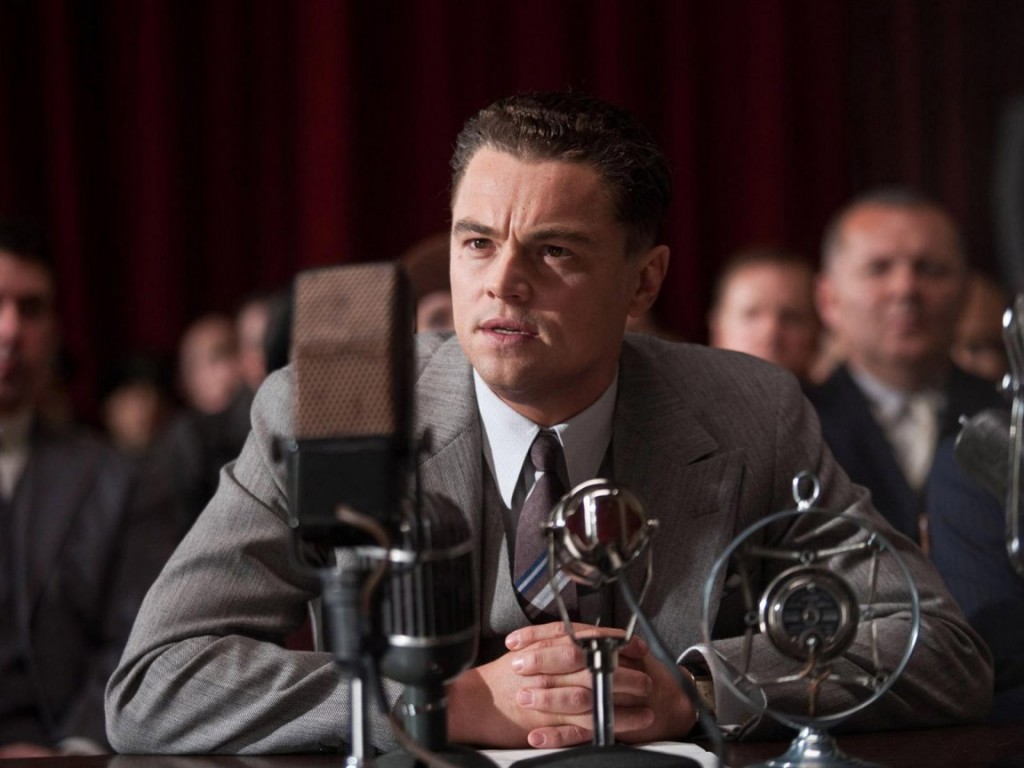
J Edgar Hoover (Leonardo DiCaprio) is nearing the end of his tenure at the FBI, and so he calls in an agent to document his “life story”, as a way of preserving history for the future generations. Hoover begins recounting his life from the moment in 1919 when a series of bombs were sent to the homes and offices of a series of prominent US politicians, as a way for revolutionary Bolsheviks to strike fear into the populace. Hoover’s belief that crime scenes needed to be preserved to document factual evidence which might lead to convictions, led him to start the process of allowing science to enter the realm of law enforcement – fingerprinting, a centralized filing systems whereby information on criminals from all over the country could be stored to connect crimes across state lines. With this new system comes push-back from a variety of politicians and law enforcement officials, who see it all as a waste of time; Hoover begins to recruit college graduates into the Bureau Of Investigation as a way of ensuring the smarter guys were on the right team. One of his recruits, Clyde Tolson (Armie Hammer) becomes Hoover’s closets confidante, while one-time love interest Helen Gandy (Naomi Watts) is given the job of Hoover’s personal secretary, a job she carries out with utmost dedication even after Hoover’s death. Hoover’s mother (Judi Dench) is exceptionally proud of her son, and he relies on her as the sole motherly figure in his life. The Bureau is put under the microscope when the infant son of famed explorer Charles Lindbergh (Josh Lucas) is kidnapped, leading to a two year investigation and the eventual arrest of a German national named Bruno Hauptmann (Damon Herriman) for the crime. As their time together increases, Hoover and Tolson become firm friends, although it is hinted that they may have been something more, while political pressure on the aging Hoover by each successive President, and Hoover’s own inability to be flexible with the changing times, brings him into direct conflict with the establishment he so faithfully served.
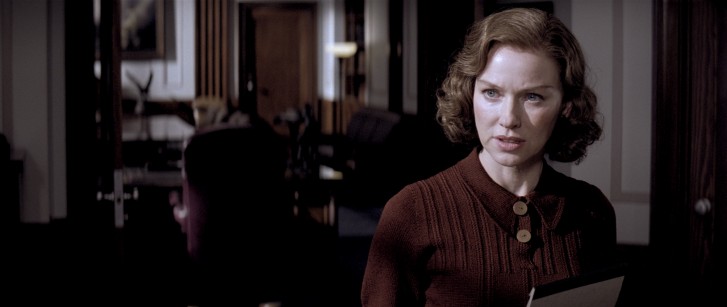
The conflicted history of the United States has long held a fascination with both local audiences and world audiences for many years. The birth of that country, borne of a want to end the oppressive regimes of English monarchy, has been covered in more movies and television shows, documentaries and theatrical productions than one might ever count. That America has endured its share of tragedy, failure and hubris is well documented, although it is perhaps the 20th Century, the country’s most recent history, that has held the most fascination for audiences. Among the elements of the 20th Century that gave rise to the America we know today, it is the concept of law enforcement and it’s practical application in terms of solving crimes, that has provided most of us with what we now perceive as inherent truths – the infallibility of forensic science, and the use of facts to cause conviction in a court of law. Most law enforcement today is beholden to J Edgar Hoover for the foresight he had in designing a centralized, easily navigated method of tracking, logging and filing information on people with connections to undesirable elements – radicals and extremists – that we debate so hotly in today’s terrorist-ridden climate. The introduction of fingerprinting was something Hoover introduced: now, that technology is something we take for granted. Hoover’s decision to bring forensic experts to testify in cases, remains a default in modern society today. Indeed, the formation of the FBI into one of the most powerful policing forces in the world probably bears a case study all its own, but in J Edgar, it merely forms the backdrop of a look into one of history most mysterious and misunderstood figures.
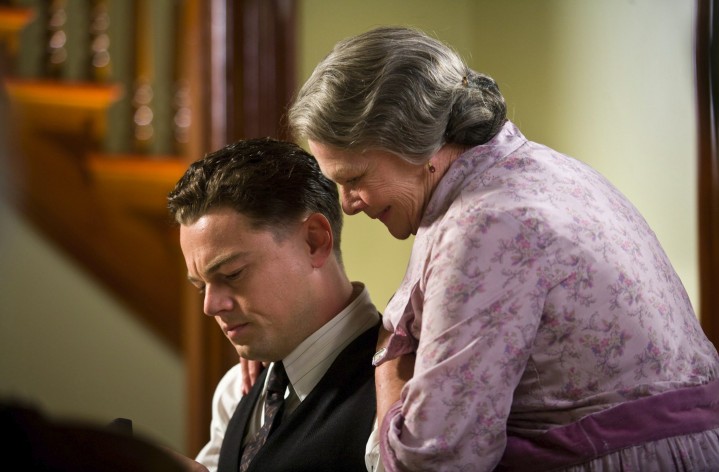
J Edgar is a typically laconic Eastwood film. Its pace is deliberate (some might say plodding), the scripting at times isn’t as razor sharp as it could be (scenes between Hoover and some of his underlings comes across as somewhat perfunctory), but the production values, the acting and the sense of history Eastwood creates within the frame are nothing short of exemplary. J Edgar covers a vast time frame – from the early 1900’s to the mid-70’s, with the introduction of Richard Nixon into the White House – and the attention to detail with period costuming, set design and anachronistic props adds much to the weight the film carries with its subject. The film reeks of the periods in which it is set, using Tom Stern’s magnificent cinematography to drape this movie in shadow and detail; the darker Hoover’s world becomes figuratively, the darker it becomes on screen, at times reaching such oppressive darkness you struggle to see how anybody can escape it. Eastwood’s grand visual style, eschewing frivolity in favor of a steady, solid sense of history, is remarkably clean, almost Steven Soderbergh-esque in its simplicity. It makes for a pleasing film to watch, in that the characters become the driving force of the movie, not the stuff they’re standing in.
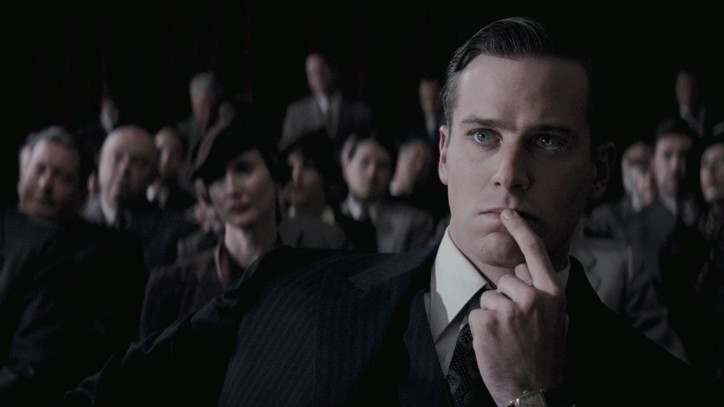
Leonardo DiCaprio is magnificent as Hoover, giving him depth and vitality even when his actions might scream hypocrisy or stupidity; DiCaprio makes him human, first and foremost, flaws and all, and it’s this that gives J Edgar a cinematic truth. Whether everything depicted on the screen occurred exactly as portrayed or not, DiCaprio manages to elicit both anger and sympathy for a man most people have come to know as a parody of his own mystery – cross-dressing and all. Backing up DiCaprio’s menacing, strident portrayal of Hoover, is Armie Hammer as Clyde Tolson, Hoover’s right-hand-man. Tolson, like Hoover, never married or had any personal relationships other than those he carved out at the Bureau. Tolson went everywhere with Hoover, even on holiday, lending credence to the notion that the pair might have been lovers of some kind. Eastwood’s film depicts an unhinted sexual tension between the pair, a tension that boils over when Hoover threatens to create a sham marriage to Dorothy Lamour, a popular American actress of the time. The relationship between Hoover and Tolson is never really examined in exceptional depth – there’s too many other plot point to cover in the film – but the allusions to an unfulfilled desire between the pair, whether real or not, allows Eastwood to develop a more human side of Hoover outside of the public figure he became. Hammer isn’t quite as nuanced as DiCaprio, especially in the scenes where he’s an older man, but he’s more than adequate in the role for me.
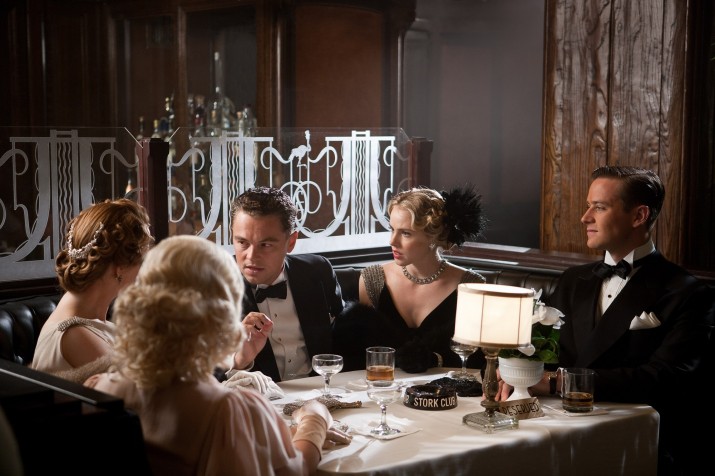
Judi Dench provides some moral support as Hoover’s mother, although her role seems underwritten and poorly executed in one of the film’s less convincing character arcs. It does try and answer the question of Hoover’s desire to dress in women’s clothing, inasmuch as his lack of motherly figures in his life seemed to lead him to try and recreate one the only way he knew how – to dress like one; this is fanciful on Eastwood’s part, but the script, and Dench’s powerful presence in the film, adds credence to its possibility. Naomi Watts, as Miss Gandy, Hoover’s loyal secretary, is solid if never stretched in the role. When she rebuffs Hoover’s romantic advances, he decides the only way to keep her close is to make her his secretary; Gandy claimed she never had any interest in marriage, as her career was the primary focus in her life. In effect, Hoover surrounded himself with people who felt the same as he did – loyalty to him and country, and as a subtext to the story, it is indeed fascinating. It’s only a pity not much more detail about Gandy was forthcoming in this film, as once Gandy’s promoted to secretary, all Watts is asked to do is answer the damn phone and hand Hoover files.
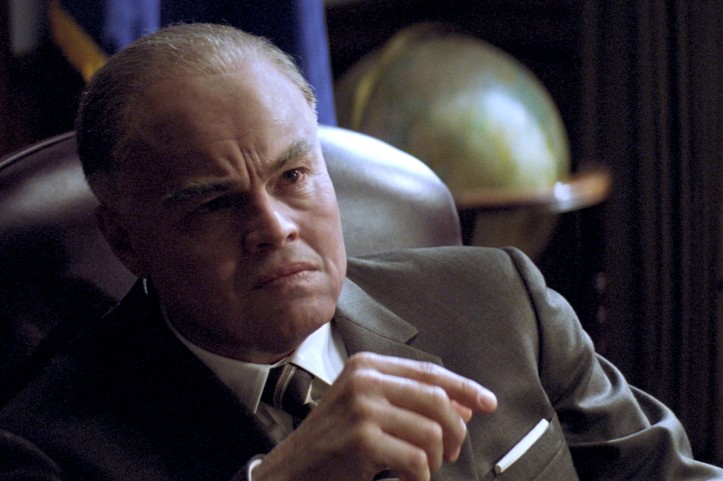
Eastwood’s populated this film with some fine character actors to flesh out the real world he’s created. Josh Lucas plays the adventurer, pilot and Medal Of Honor recipient Charles Lindbergh, although he’s provided with very little to do other than stand about looking worried after his young infant son is kidnapped. Lea Thompson passes by almost unrecognized as Ginger Roger’s mother, Lela, while bit roles to Stephen Root, as Arthur Koehler, and Denis O’Hare as Albert S Osborn, are as delightful for their brevity as their simplicity. Zach Grenier, as kidnapper liaison John Condon, does well with limited material.
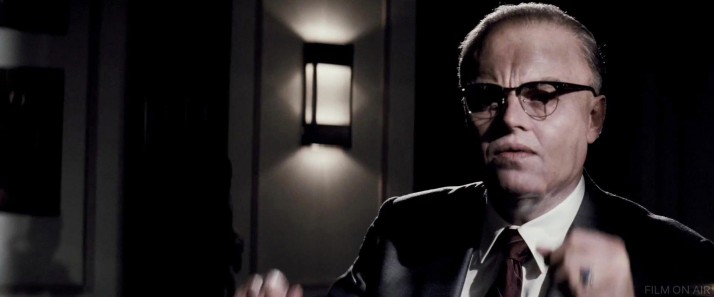
But the film rests on DiCaprio’s portrayal of Hoover. This, coupled with Dustin Lance Black’s often tech-heavy script is the real delight in watching J Edgar. Black has given Hoover a reality, a living, breathing humanity that, even if not entirely true, is as potent a film creation as any in recent memory. The film sags towards the end, with a haze of emotive content that seems out of place with the preceding first two acts, as if Eastwood is trying to cobble together the disparate aspects of Hoover’s life before he shuffles off the mortal coil, and although much of the film has spent time trying to take us inside the mind of Hoover, it’s in this final act where that is actually accomplished, even if it doesn’t come across as effortlessly sharp as the rest of the movie. Generally, Eastwood’s got a handle on the pacing and the timing, as well as the inter-cutting of the past and present tenses the film is set in, but the finale drifts into melodrama somewhat, coming across more diffuse than it should have been at that point in the story.
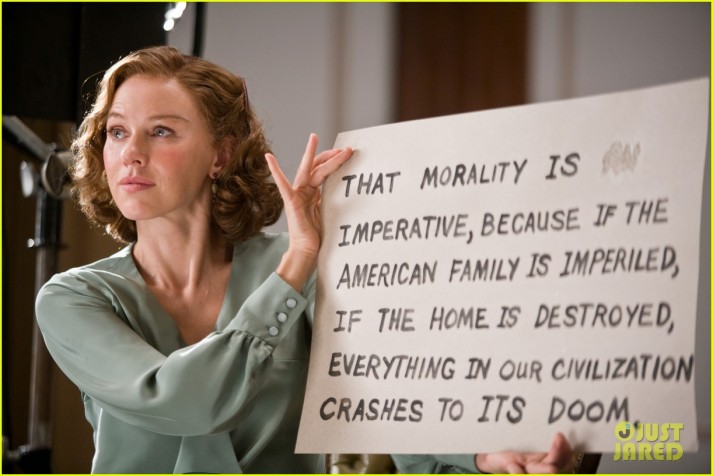
Key elements of the film might very well render this review moot, however, if the audience cannot get past one singular aspect of J Edgar that refuses to budge: the use of old-age makeup. Instead of casting DiCaprio and his co-stars as the younger versions of the people they’re portraying, and different, older actors for the 70’s equivalents, Eastwood and his team made the brave decision to rest the film on the application of heavy age makeup, knowing full well that if the audience didn’t buy DiCaprio as a 70+ year old Hoover, then the film would fail. So is the makeup applied to DiCaprio, Hammer and Watts effective, or does it rob the story of believability at the juncture in which it’s most crucial? In my opinion, the makeup holds up well, although if there’s any real weakness, it’s Hammer’s post-stroke Tolson who comes away the worst. Generally, however, DiCaprio and Watts really sell their elderly selves well, and the film is lit in such a way that these make-up prosthetics never seem harsh or confronting to the camera; they’re present, naturally, and it takes a while for the eyes to get used to seeing DiCaprio act like a doddery old man, but to his credit, he pulls it off. Eastwood’s gamble – in my opinion – paid off. I can see how others might disagree, though.
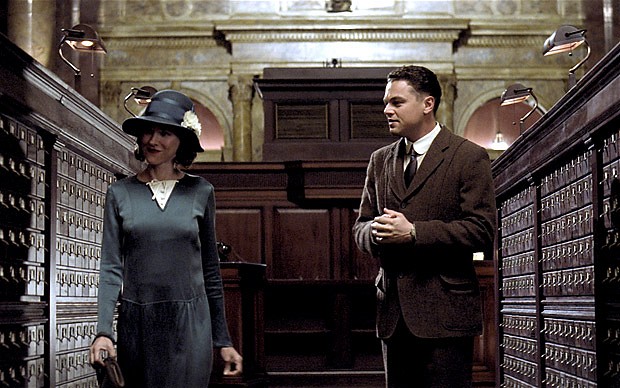
Ultimately, I really enjoyed J Edgar. While its ending was less than satisfactory for me, the overall impact of the film served to give weight to the creation of a Federal agency capable of solving crimes in ways the normal police force simply couldn’t. I loved the detail, found the use of flashback storytelling added to the mystique of the times, and give DiCaprio big props for really delivering in his portrayal of a vastly misunderstood individual. J Edgar might not be everyone’s cup of tea, but in Eastwood’s sure hands, it’s a very well told story, true or not.


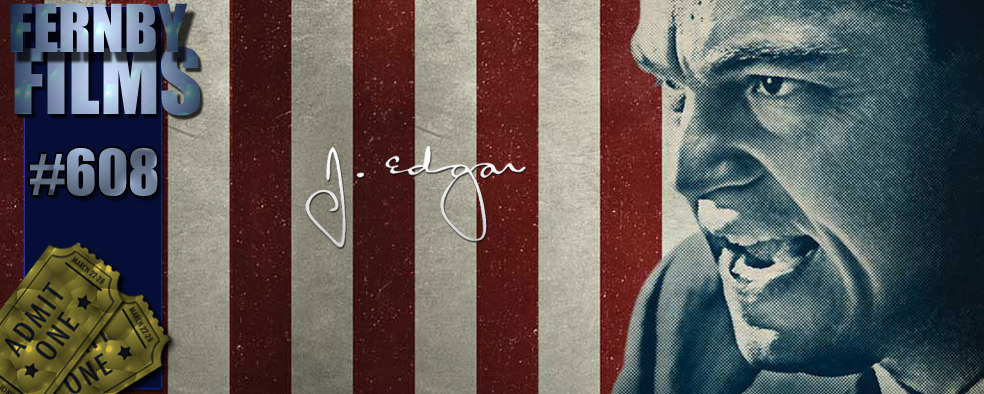



 Gorillaz – Clint Eastwood
Gorillaz – Clint Eastwood
 The House That J. Edgar Built: FBI Facts
The House That J. Edgar Built: FBI Facts
The lukewarm response I seem to have read about this one is perhaps the reason why I haven't seen it yet. Although I have said a few times that Eastwood has got better and better as a director, I have enjoyed the film he's starred in and directed a lot more than those he's "only" directed.
My recent post The Best of Clint Eastwood
Look, it's worth at least one look, if only for DiCaprio's performance if nothing else. Forget the age makeup, forget the Eastwood directorial factor – this isa DiCaprio film first and foremost, so it's worth a look for that alone.
i thought it was slow as well, and looking back over my review i see i compared the makeup to the rubber masks on Mission Impossible… This was a pass for me.
My recent post The Booze Talkin’: My Exclusive Interview with Noa Lindberg
Except the masks in Mission Impossible were better done.
I figued you'd probably not enjoy this film – way too slow and not enough booze in it…. 🙂
I really didn't like this movie, very slow and never really exciting. Happy to see you got a lot more out of it than I did.
My recent post Moulin Rouge! (2001)
Nostra!! Nice work! I can understand why some might have hated or been annoyed by this film, but I really enjoyed it. Which goes to prove that were we all to love and hate the same things, the world would be rather boring!!
Yeah, that's never a bad thing 🙂
My recent post Moulin Rouge! (2001)
Unless we're talking about Paris Hilton. How anybody likes that thing is utterly beyond me.
"some might say plodding" Like me. LOL. I hated this movie Rodney, sorry to say, but its was SO dull and dry. 🙁
Fair enough – this film isn't for everyone. It does move at a glacial pace most of the time, but I found this didn't detract from the story as much as I thought it could have. Thanks man!! 😉
It's a shame that DiCaprio and Hammer were neglected for their make-up when they gave solid performances.
Hmm, I doubt Oscar would have ever come knocking for the makeup, to be honest, even though I thought it was generally well done; I agree, DiCaprio and Hammer deserved more recognition in those roles.